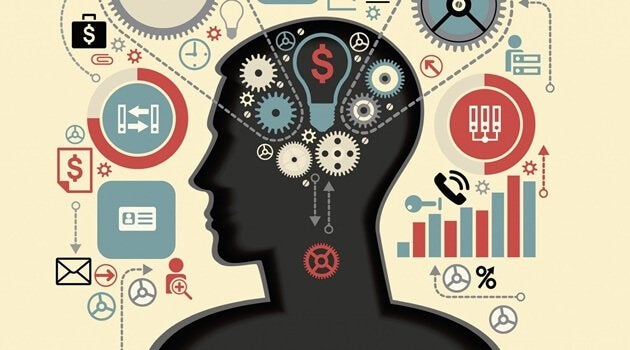Executive functions are complex cognitive processes. It is these mental activities that we carry out to build relationships with the people around us, create, prioritize a certain activity, control time and even self-care, it is like an automatic sequence of processes that we execute every day without even realizing it.
It may seem a little difficult to understand at first glance. We often hear that the brain functions like a computer and uses almost the same mechanisms. Well, you could say it’s much better.
- Executive functions are those incredibly sophisticated skills that allow us to control our behavior and achieve our goals.
- Something that significantly outweighs any type of technology.
Is it in the brain where it all happens? Oscar Wilde?
Let’s look at an example. We’re going to bed with a book. As we search for the chapter where we left off the day before, we are thinking about what we are going to do tomorrow, we chose a goal, we decided what is best to postpone and what to prioritize, we are excited about the goals proposed for the next day. Then we focus on reading, thinking that in an hour we have to turn off the light and fall asleep.
This simple scene shows how our brain performs a multitude of processes in a short period of time, just for a few seconds. We choose, prioritize, plan, supervise and focus on different goals.
Human beings don’t come into the world with all the executive functions out of the box. It is curious to know, for example, that many processes acquire their full functionality around the age of 25. The reason? These cognitive abilities are located mainly in the prefrontal structures and are, in turn, the last to develop.
The first neurologist to talk about these functions, as well as the executive system, was Alexander Luria. After all, it can be said that these processes are a very recent fact from a phylogenetic point of view.
Within our evolution as a species, they represent the younger ones, and are also associated with two very concrete milestones: the acquisition of language and the increase of frontal lobes, events that were a revolution at the time.
Our social groups became more sophisticated, there was culture, control of our environment and a whole succession of advances that came to build who we are today.
However, there is one key aspect to highlight. While it is in our genetic code that these processes improve as we mature (usually appear between 8 and 12 months, with the development of the baby’s language), the complete acquisition of executive functions depends on several aspects.
From the age of 2, the type of interaction we receive is essential, as is its quality, stressful experiences or unsafe attachment hinder its good development.
However, the good news is that these cognitive functions can be trained. As long as there are no serious neurological problems, we can all further refine the gears of executive functions.
Animals also have their executive functions. However, these are a little more rudimentary, present their needs, a perceptual system that guides them in their behavior and a physical and motor system that guides them to meet these needs, these instincts.
The prefrontal cortex is one of the newest phylogenetically and the last to mature in ontogenesis, this is where our most refined functions are found, which we must all train daily. K. Goldberg-
In humans things are a little more sophisticated, we travel only to meet our needs, besides the instincts that characterize us are the goals, obligations, social ties and our cultural and social scenario, our environment is so complex that we need a brain capable of adapting to this kaleidoscope of internal and external stimuli, that’s where executive functions come in.
They’re next
In conclusion, the executive brain is undoubtedly the greatest gift that has given us our evolution as a species, however, there is a nuance that we cannot ignore: executive functions lose functionality with age, so it is never exaggerated to point out what we mentioned above:
Let us not miss a day without learning something new, let us not miss a moment without cultivating curiosity, critical thinking or quality interaction with our friends and family, all these elements are nutrients for our brain, energy so that these cognitive processes resist time.

